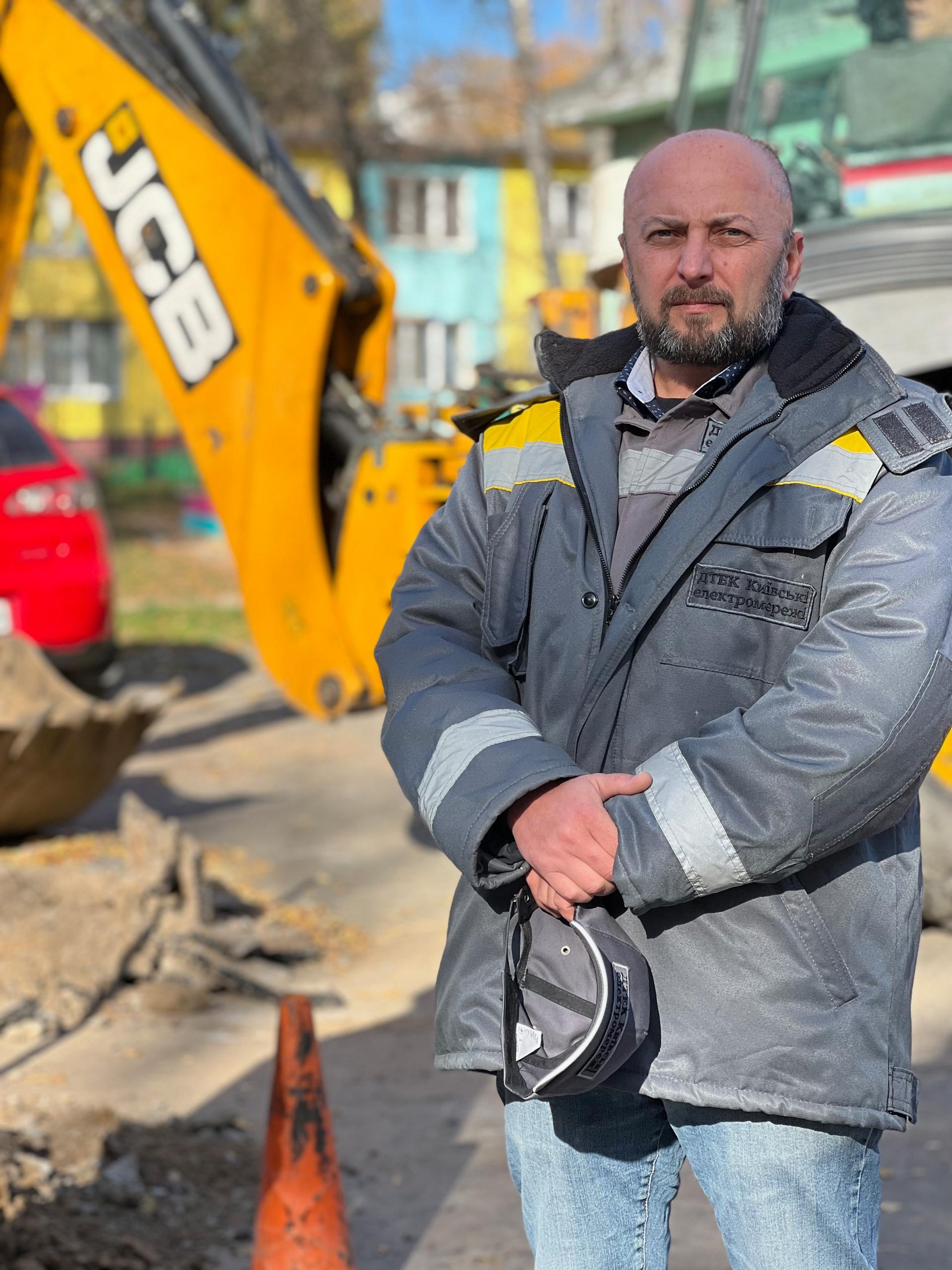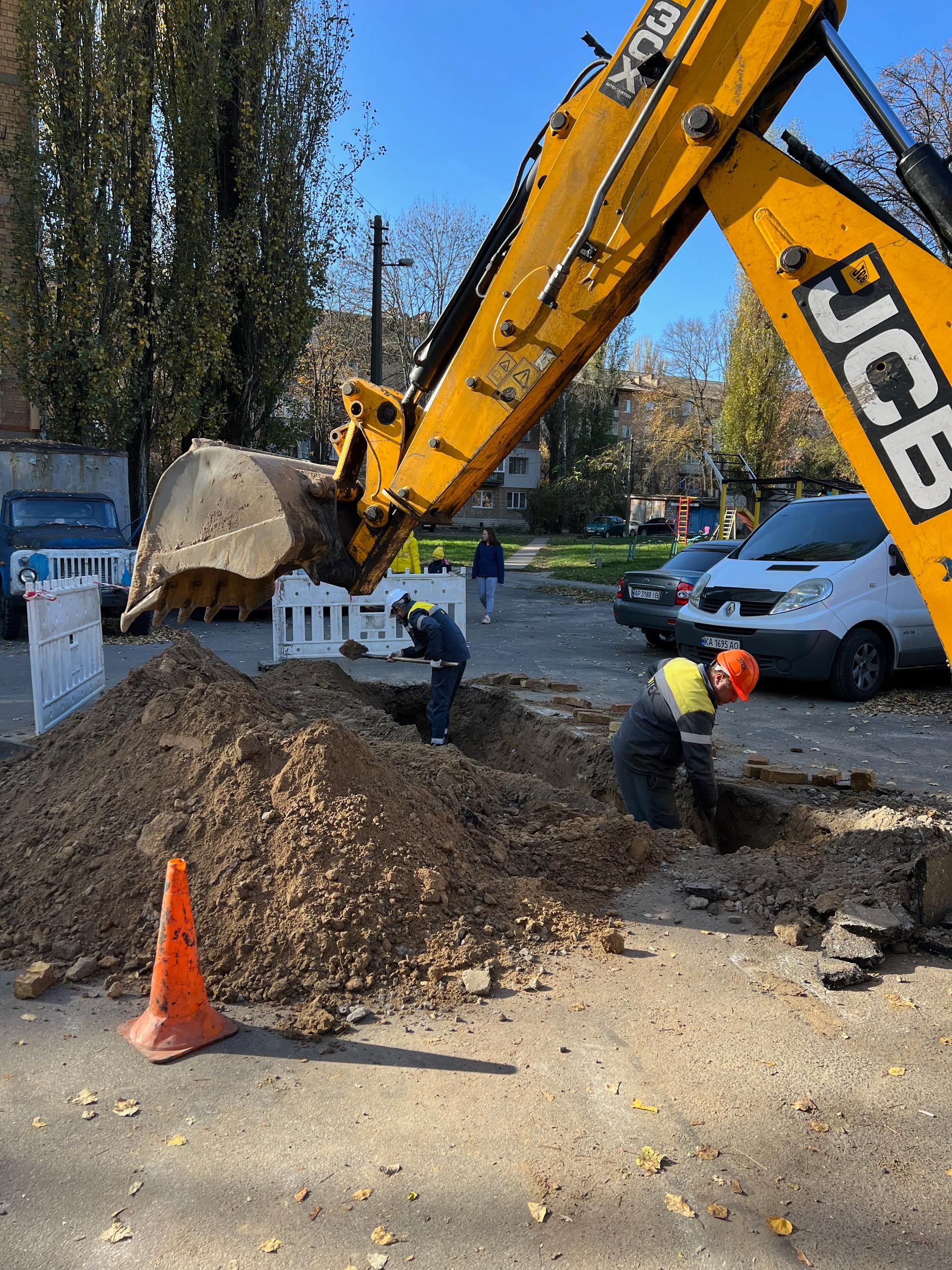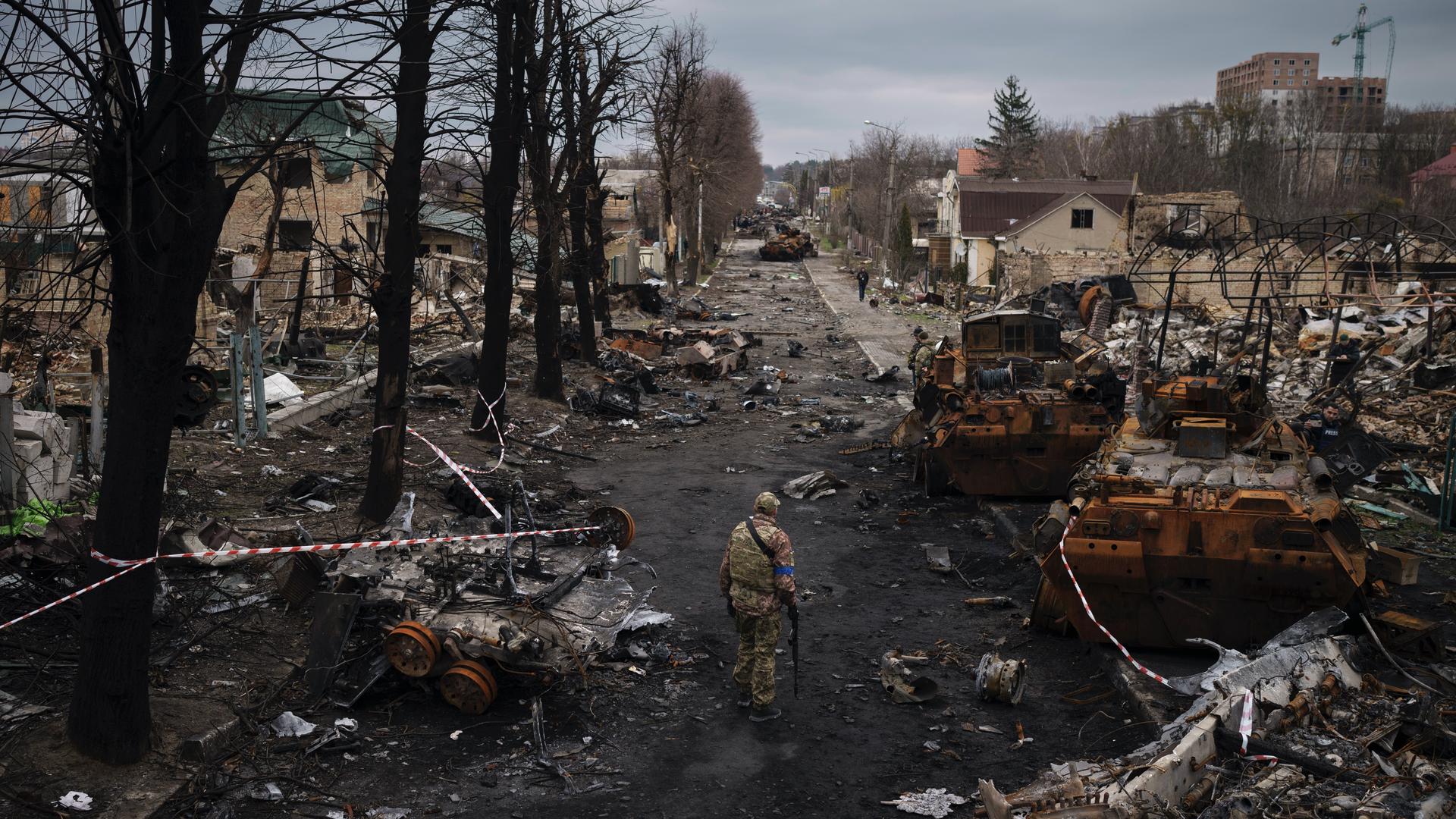Thirty-seven-year-old Diana, who lives in Kyiv, Ukraine, awoke with a jolt at 5 a.m. on Feb. 24.
Diana heard explosions, and in that moment, she realized that war had come to her city. It was terrifying — “I was in bed. And we heard bombs. It [was] awful,” said Diana, who didn’t want to share her last name out of safety concerns.
She, her husband and their 4-year-old twin daughters hid in the basement of their home for a week.
In the next days and weeks, as the war intensified, Diana and her children moved from one city to another — her husband had to stay behind to join the army. First, the family left Kyiv for the western part of the country. Then, they went to Poland. This is what Russia’s war in Ukraine has done to many Ukrainians: constant displacement.
Now, a few months later, Diana and her children are returning to Kyiv, despite recent attacks — including on critical infrastructure in Kyiv on Monday. They are among a number of Ukrainians trying to get back home, back to some sense of normality, even though it’s risky.
Diana, speaking from a long line at Przemysl train station on the Polish side of the border, said she worries about how things will be in the winter. But she’s made up her mind.
“Because it’s my country and I love my country and I love my husband. I missed him so much, and I will return to him,” Diana said just before she and her daughters headed toward a waiting train, the twins dragging their penguin suitcases behind them.
Meanwhile, in Kyiv, a day after the attacks, the city appeared to return to life. Even the street musicians seem undeterred.
Ukrainian officials said Monday’s rocket strikes left roughly 80% of the city without water. The water was restored but electricity remains sporadic.
That’s part of Russia’s war tactic, Andriy Petrovych Osadchuk, a member of Ukraine’s parliament, told The World.
“As soon as Russians [have] problems with the Ukrainian military on the front line, they [start] targeting civilians. It’s difficult to find a missile for each Ukrainian, so that’s why they select tactical, classical Russian tactics of mass destruction. Because [by] switching off electricity for the city of Kyiv, you simultaneously target 2.5 million people.”
Like so many in Ukraine, Osadchuk is worried about the winter months ahead. He said that even though winters have been somewhat warmer in recent years, a lack of heat or electricity will create a lot of problems for people, especially the elderly and the sick.
But on the outskirts of the capital, crews are already busy repairing the damage.
Yurii Herasko, 47, manages a team of workers there. Today’s mission is to replace the broken backup electrical system.
Herasko said that some of his colleagues have had to leave to fight on the front lines. So, they’re short-staffed.

It doesn’t help that the Russian military keeps targeting the grids, plunging whole cities into darkness.
He said that he has experienced power outages at home, too. His family has stocked up on candles and camping stoves.
Herasko said that never in his 20 years of work has he been under so much pressure. Still, he sees his work as part of the resistance to Russia’s attacks.

“We’re not heroes,” he said. “The heroes are the ones fighting on the front lines.”
The World is an independent newsroom. We’re not funded by billionaires; instead, we rely on readers and listeners like you. As a listener, you’re a crucial part of our team and our global community. Your support is vital to running our nonprofit newsroom, and we can’t do this work without you. Will you support The World with a gift today? Donations made between now and Dec. 31 will be matched 1:1. Thanks for investing in our work!
